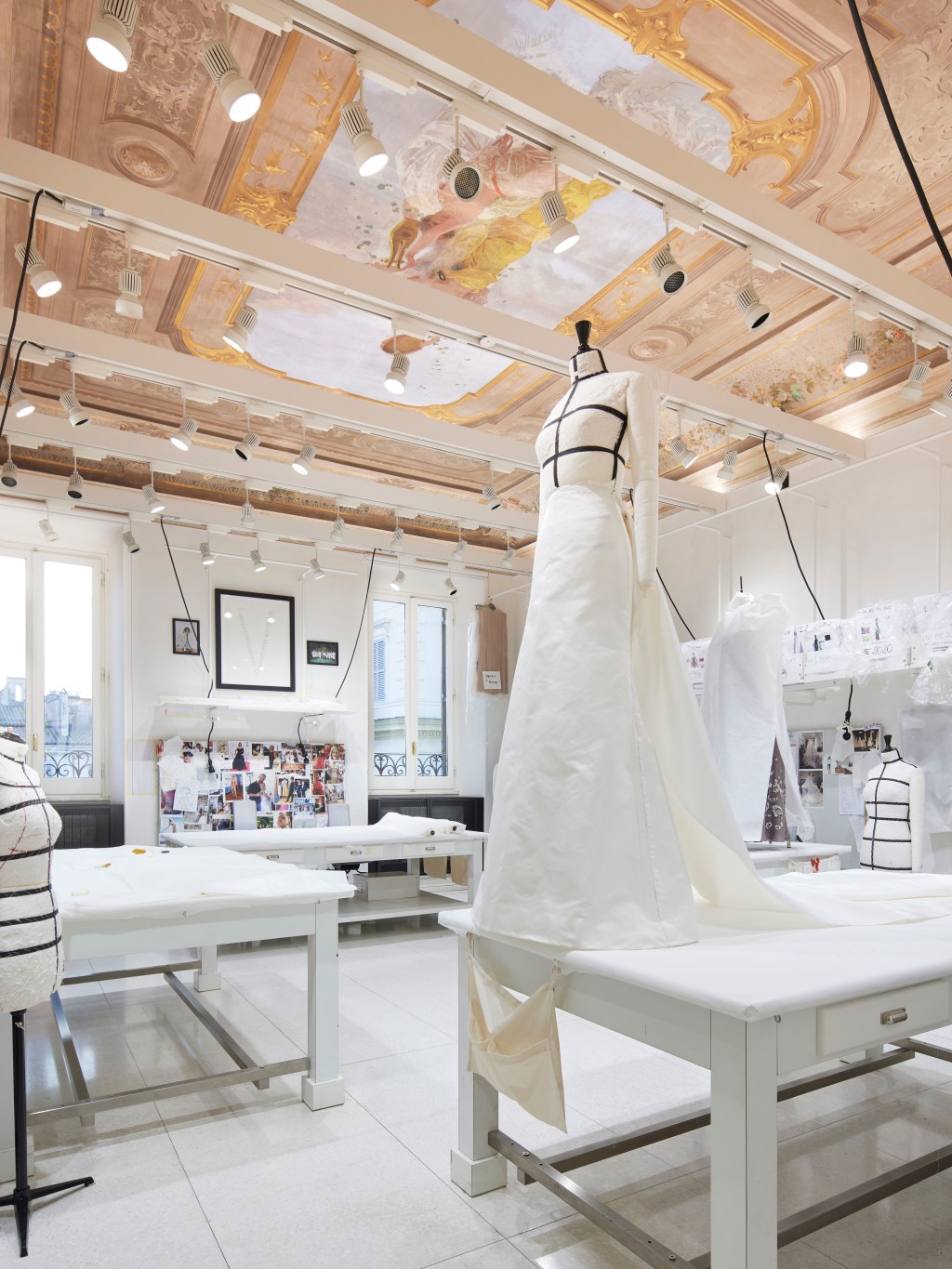MILAN — As the fashion industry struggles with the generational handover in Italy, and to train young talents in artisanal and craftsmanship skills, brands and fashion companies are rushing to set up their own academies, ensuring a talent pipeline.
Further committing to preserving its couture credentials, Valentino has expanded its “La Bottega dell’Arte” internal academy. First established in 2015 at the brand’s storied headquarters on Piazza Mignanelli in Rome, it is now relocating in a different area of the building in tandem with the kickoff of the 2023 training program edition.
The new area is bigger and more well-equipped than the previous location, the company said, with an adjacent stockroom, bigger tables and spaces to store garments and embroideries in the making, as well as a locker room and additional tools for the students.
The training program is spearheaded by a former première, or head of the atelier, and two former seamstresses teaching a variable range of students each year the crafty tailoring techniques and skills to support the creation of the two haute couture collections that debut later in the nine-month academic year, in January for spring and July for fall.
Tasked with learning the craftsmanship that goes into couture concoctions, students are also required to develop a personal fashion project, a couture garment, to be presented to Valentino creative director Pierpaolo Piccioli.
Since its establishment, the Bottega dell’Arte has trained about 35 students. Valentino said that about 20 percent of the overall workforce at its five key haute couture ateliers in Rome were trained via the internal academy.
The academy’s name “bottega” is a nod to Renaissance workshops in key cultural hubs and cities such as Florence and Rome, where a collective of artisans honed their skills and transmitted knowledge from one generation to the next. It is fully funded by Valentino and by proceeds coming from the luxury brand’s Valentino Sleeping Stock program.

Introduced in 2021 in partnership with French textile reseller Tissu Market, the initiative is aimed at selling deadstock Valentino fabrics sitting in the company’s warehouses, including chiffon, taffeta, crêpe de chine and silk georgette, among others. The reseller markets the fabrics to artists and art professionals, movie, opera and theater production companies, as well as fashion schools.
The maison said the program allowed it to sell more than 72,000 feet worth of couture and ready-to-wear fabrics, saving about 265 tons in carbon dioxide emissions and 292 million gallons of water that would have come from the production of new fabrics.
Several Italian companies have their own training schools, from the Tod’s Group with the Bottega dei Mestieri, to Fendi, Brunello Cucinelli’s “school of crafts,” and Prada, to name a few. Fendi has also been supporting the Adopt a School project in Scandicci for bags and in Fermo for shoes to train new artisans.
Earlier this year, as reported, Bottega Veneta launched the Accademia Labor et Ingenium — or craft and creativity in Latin — two words seen on the company’s original crest. Based between the Bottega Veneta atelier in Montebello Vicentino and a dedicated new space at the brand’s manufacturing site in Povolaro Dueville, it will allow the company’s employees, new hires and external students to learn from master artisans through training activities, workshops and courses.
At the Prada Group Academy, which was founded in the early 2000s, more than 200 new professionals will be trained over the next year across leather goods, footwear and ready-to-wear. The group will also establish a permanent branch of the Prada Group Academy at its Scandicci plant, near Florence, dedicated to leather craftsmanship. Around 30 students will be part of the first program there.



